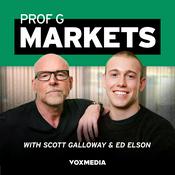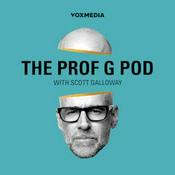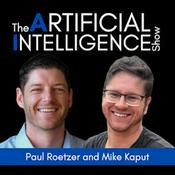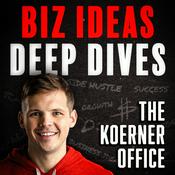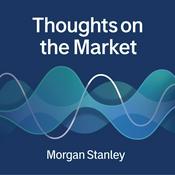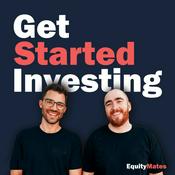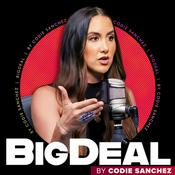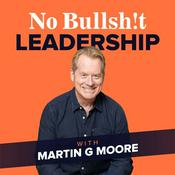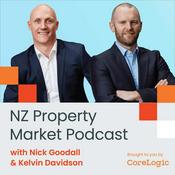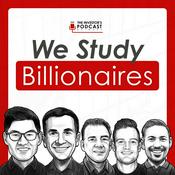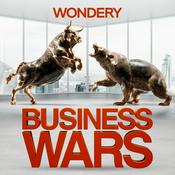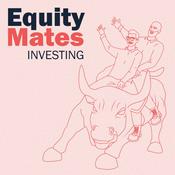128 episodes

Financing Climate and Nature Together: AIIB’s Climate Strategy in Brazil and Beyond
07/1/2026 | 49 mins.
In this episode of Climate Rising, Erik Berglöf, Chief Economist at the Asian Infrastructure Investment Bank (AIIB), shares how this relatively young multilateral development bank is helping emerging economies finance climate and nature-based solutions. Erik discusses AIIB’s approach to climate policy—including infrastructure decarbonization, green finance, and biodiversity credits—and offers a behind-the-scenes look at its work with Brazil, including its $1B climate policy loan and support for the landmark Tropical Forest Forever Facility. Erik explains the importance of integrating nature and climate in development finance, the need for finance ministries to lead coordination, and how countries like Brazil are using platforms like Eco Invest to blend public and private capital for nature and resilience projects. This episode is part of our Global South series, which also includes episodes with JSW Steel, Tata Power from India and re.green, a carbon offsetting platform from Brazil. Visit climaterising.org for more.

Scaling High-Integrity Nature-Based Carbon Removal with re.green
22/12/2025 | 47 mins.
Marcelo Medeiros, co-founder and CEO of re.green, joins Climate Rising to discuss how his company is restoring millions of hectares of degraded land in Brazil’s Atlantic Forest and Amazon biomes by producing high-quality nature-based carbon removal credits. Marcelo explains how re.green combines data science, forest restoration, and long-term land ownership to deliver durable carbon sequestration—and why they chose a for-profit model to scale impact. He discusses price transparency, quality verification, and how re.green is preparing for a future where compliance carbon markets may accept removal-based offsets from nature-based solutions. Marcelo also shares how winning the Earthshot Prize brought global visibility, how AI is improving ecosystem planning, and how the company works with clients like Microsoft and Telefónica under long-term offtake agreements. This episode is a part of our Global South series. Explore more episodes at climaterising.org.

Tata Power and India's Energy Transition: Balancing Growth and Decarbonization
10/12/2025 | 38 mins.
As bonus episode of Climate Rising, we feature a conversation among Tata Power CEO Dr. Praveer Sinha, Harvard Business School Professor Vikram Gandhi, and HBS Chief Marketing and Communications Officer Brian Kenny that explores how India’s largest private power company is navigating its net-zero commitment while supporting a rapidly growing economy. With energy demand projected to quadruple by 2047, Tata Power has committed to phasing down coal and expanding renewables, distributed generation, and smart grid investments. This conversation, based on the HBS case “Tata Power and India’s Energy Transition” and originally recorded for the HBS Cold Call podcast, explores how Tata Power balances profitability and purpose, the role of technology and grid modernization, and how energy transition in the Global South differs from the Global North. Dr. Sinha also shares insights on employee reskilling, engaging customers as “prosumers,” and why long-term vision is critical to executing a climate-aligned business strategy. This episode is part of Climate Rising’s Global South series, which features companies and organizations at the intersection of business and climate in India and Brazil. Explore more episodes at climaterising.org.

Decarbonizing Steel in the Global South: JSW Group’s Climate Strategy
26/11/2025 | 57 mins.
Parth Jindal and Prabodha Acharya of JSW Group join Climate Rising to discuss how one of India’s largest industrial conglomerates is reducing the carbon intensity of its steel business while scaling infrastructure for a fast-growing economy. They share how JSW built vertically integrated operations—from power to cement to ports—through industrial symbiosis, and why energy efficiency, renewable power, and circular practices are at the heart of its decarbonization roadmap. The conversation explores India’s dual challenge: meeting rising domestic steel demand while managing its climate vulnerability. Parth and Prabodha explain JSW’s green investments, hydrogen pilots, carbon capture initiatives, and why cost competitiveness, stakeholder pressure, and industrial policy shape the path forward. This is part of our Global South series, which also features Tata Power and organizations in Brazil at the intersection of business and climate. Explore more episodes at climaterising.org.

De-Risking Climate Tech: Inside the Massachusetts Clean Energy Center with Galen Nelson
12/11/2025 | 53 mins.
Galen Nelson, Chief Climate Officer at the Massachusetts Clean Energy Center (MassCEC) explains how the state is helping accelerate climate innovation through early-stage grants, equity investments, and infrastructure support. Galen outlines how MassCEC targets “market failures” where private investors hesitate—such as pilot and demonstration projects—and how these public investments help attract follow-on capital, inform policy, and build economic resilience. Galen shares examples across climate tech verticals including energy efficiency, carbon-intensive materials like cement, and urban heat resilience. He also discusses how MassCEC is responding to the shifting federal policy landscape, its new authority to fund climate adaptation technologies, and how the agency’s public-private model balances innovation with accountability.
More Business podcasts
Trending Business podcasts
About Climate Rising
Listen to Climate Rising, The Ramsey Show and many other podcasts from around the world with the radio.net app

Get the free radio.net app
- Stations and podcasts to bookmark
- Stream via Wi-Fi or Bluetooth
- Supports Carplay & Android Auto
- Many other app features
Get the free radio.net app
- Stations and podcasts to bookmark
- Stream via Wi-Fi or Bluetooth
- Supports Carplay & Android Auto
- Many other app features


Climate Rising
download the app,
start listening.






